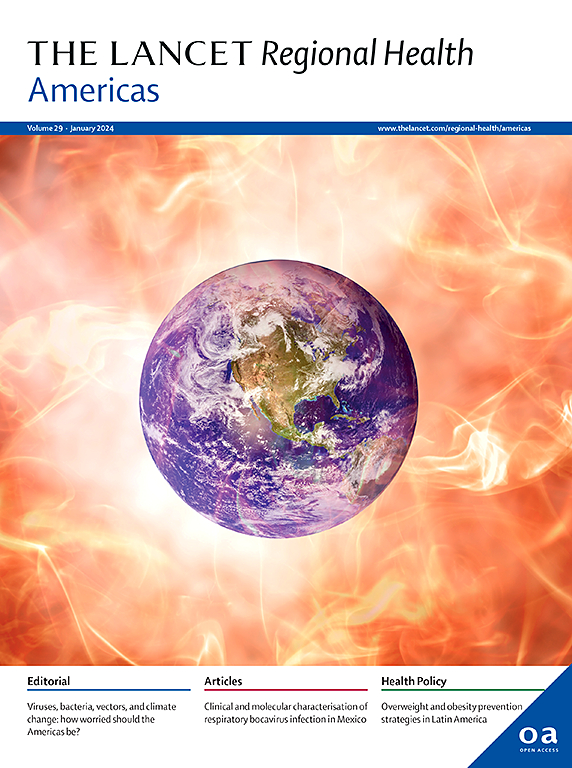在服务不足的农村和土著妇女中培养气候行动中的领导力和性别平等:对秘鲁的机会和限制的定性探索
IF 7
Q1 HEALTH CARE SCIENCES & SERVICES
引用次数: 0
摘要
气候变化对妇女的健康和福祉产生深远影响,特别是在受环境威胁影响尤为严重的全球南方国家。秘鲁是世界上生物多样性和文化最丰富的国家之一,由于其多样化的生态系统面临着不同的气候挑战,因此特别容易受到这些影响。然而,关于面临这些影响的秘鲁农村和土著妇女生活经历的研究很少。我们的目标是探索秘鲁妇女对气候变化影响的看法和经验,以及对这些威胁的需求、资产和社区反应。方法:在2022年4月至5月期间,我们对来自秘鲁北部海岸、亚马逊雨林和安第斯山脉中部和南部地区的成年女性进行了48次深度步行访谈。使用有目的和迭代雪球抽样,我们招募了社区关键线人。我们对数据进行了专题分析。我们的分析确定了四个主要主题:(1)当地对环境变化的理解;(2)气候变化的性别影响;(3)妇女参与环境治理;(4)促进性别平等的气候行动途径。参与者描述了对环境变化的生动观察,通常将这些变化归因于当地的人类活动。妇女报告说,由于与气候有关的事件,她们的照顾责任和经济脆弱性增加了。确定了妇女参与环境决策的障碍,包括传统的性别角色和在社区论坛上缺乏发言权。与会者强调了能力建设、领导力发展以及在气候行动中整合本土知识的必要性。本研究强调了在气候变化适应和环境治理中以性别平等和社会正义为中心的必要性。调查结果强调,迫切需要解决系统性障碍,重建机构信任,并采取以社区为中心的交叉方法,应对边缘化妇女的现实和优先事项。卫生系统应准备应对气候相关事件对妇女心理健康的影响,特别是与资源不安全和照料负担有关的焦虑和抑郁加剧。决策者应该制定促进性别平等的备灾计划,加强妇女在环境决策机构中的代表性,并制定文化上适当的气候传播战略,将土著知识体系纳入其中。实施有针对性的妇女领导力培训计划和建立以社区为基础的环境监测系统将增强气候适应能力,同时解决性别不平等问题。本研究由ECF的博士后奖学金资助,该奖学金来自伦敦卫生与热带医学学院和斯坦福大学的戈登和贝蒂·摩尔基金会。本文章由计算机程序翻译,如有差异,请以英文原文为准。
Fostering leadership and gender equality in climate action among underserved, rural and Indigenous women: a qualitative exploration of opportunities and limitations in Peru
Background
Climate change has profound impacts on women's health and wellbeing, particularly in the Global South, which is disproportionately affected by environmental threats. Peru, one of the most biodiverse and culturally rich countries worldwide, is uniquely vulnerable to these effects due to its diverse ecosystems each facing distinct climate challenges. Yet research on the lived experiences of rural and Indigenous Peruvian women facing these impacts is scarce. We aim to explore the perspectives and experiences of underserved Peruvian women regarding the effects of climate change, and the needs, assets, and community responses to these threats.
Methods
Between April and May 2022, we conducted 48 in-depth walking interviews with adult women from the Peruvian north coast, Amazon rainforest, and central and southern Andes regions. Using purposive and iterative snowball sampling, we recruited community key informants. We analysed the data thematically.
Findings
Our analysis identified four main themes: (1) Local understanding of environmental changes, (2) Gendered impacts of climate change, (3) Women's participation in environmental governance, and (4) Pathways for gender-responsive climate action. Participants described vivid observations of environmental shifts, often attributing these to local human activities. Women reported increased caregiving responsibilities and economic vulnerabilities due to climate-related events. Barriers to women's participation in environmental decision-making were identified, including traditional gender roles and lack of voice in community forums. Participants highlighted the need for capacity building, leadership development, and integration of indigenous knowledge in climate action.
Interpretation
This study underscores the imperative of centring gender equity and social justice in climate change adaptation and environmental governance. Findings highlight the urgent need to address systemic barriers, rebuild institutional trust, and adopt an intersectional, community-centric approach responsive to marginalised women's realities and priorities. Health systems should prepare for the mental health impacts of climate-related events on women, particularly increased anxiety and depression linked to resource insecurity and caregiving burdens. Policymakers should develop gender-responsive disaster preparedness plans, strengthen women's representation in environmental decision-making bodies, and create culturally appropriate climate communication strategies that integrate Indigenous knowledge systems. Implementation of targeted leadership training programs for women and establishing community-based environmental monitoring systems would enhance climate resilience while addressing gender inequities.
Funding
This research was funded by ECF's postdoctoral fellowship from the Gordon and Betty Moore Foundation at the London School of Hygiene and Tropical Medicine and Stanford University.
求助全文
通过发布文献求助,成功后即可免费获取论文全文。
去求助
来源期刊

Lancet Regional Health-Americas
Multiple-
CiteScore
8.00
自引率
0.00%
发文量
0
期刊介绍:
The Lancet Regional Health – Americas, an open-access journal, contributes to The Lancet's global initiative by focusing on health-care quality and access in the Americas. It aims to advance clinical practice and health policy in the region, promoting better health outcomes. The journal publishes high-quality original research advocating change or shedding light on clinical practice and health policy. It welcomes submissions on various regional health topics, including infectious diseases, non-communicable diseases, child and adolescent health, maternal and reproductive health, emergency care, health policy, and health equity.
 求助内容:
求助内容: 应助结果提醒方式:
应助结果提醒方式:


